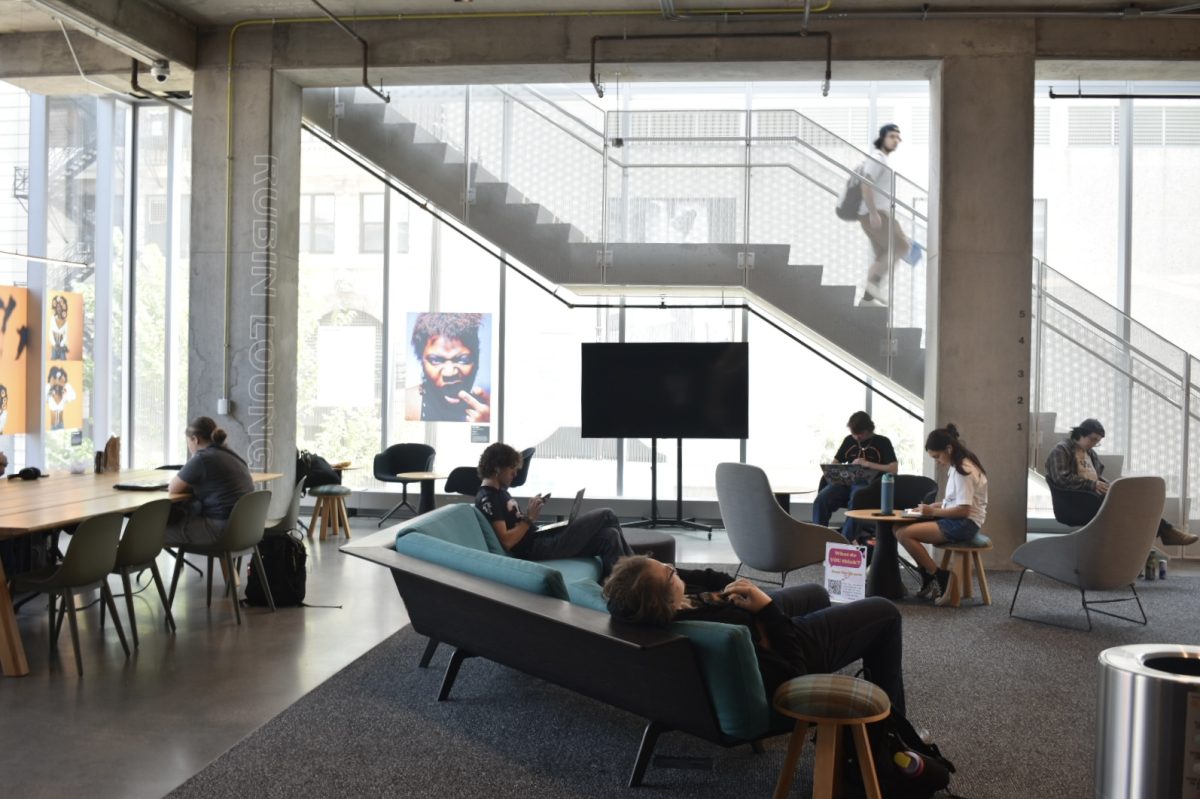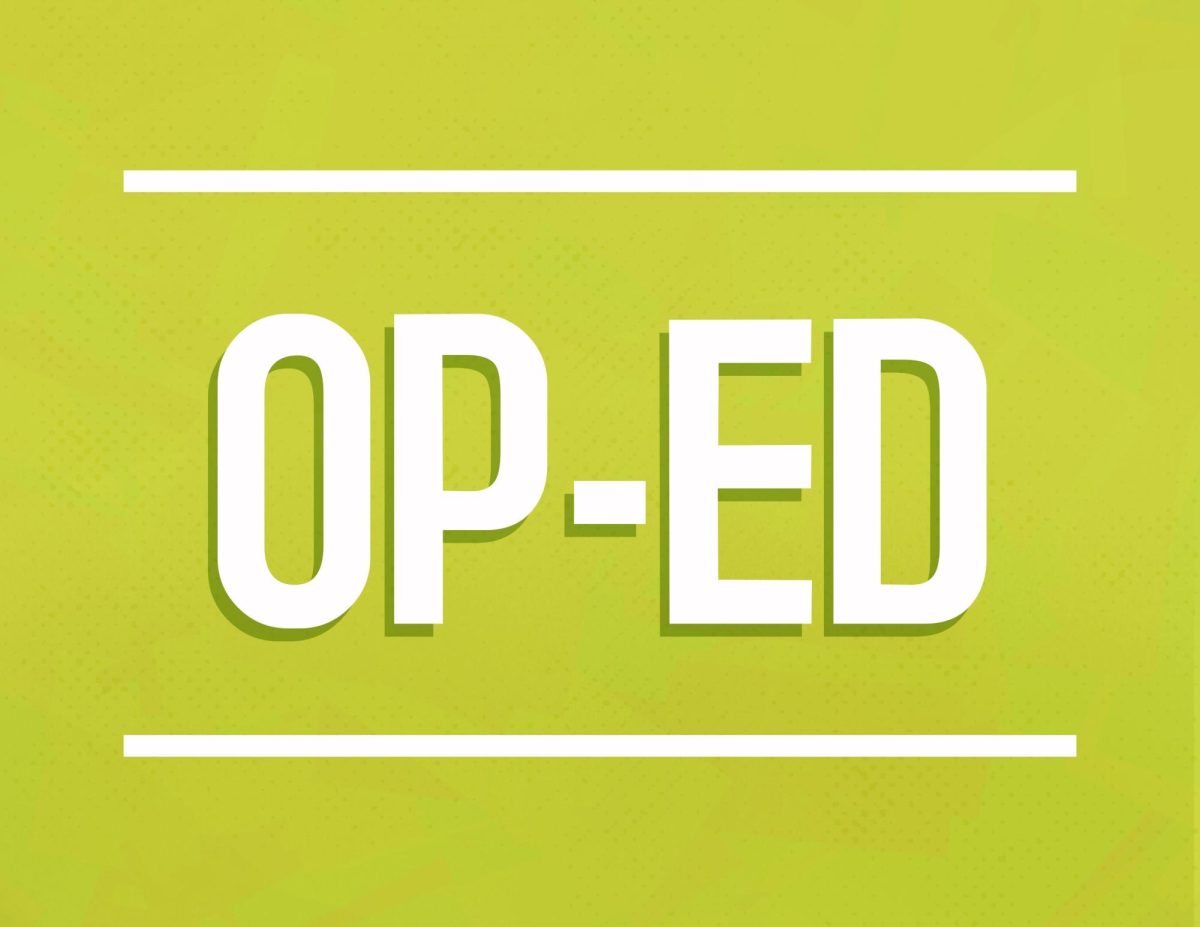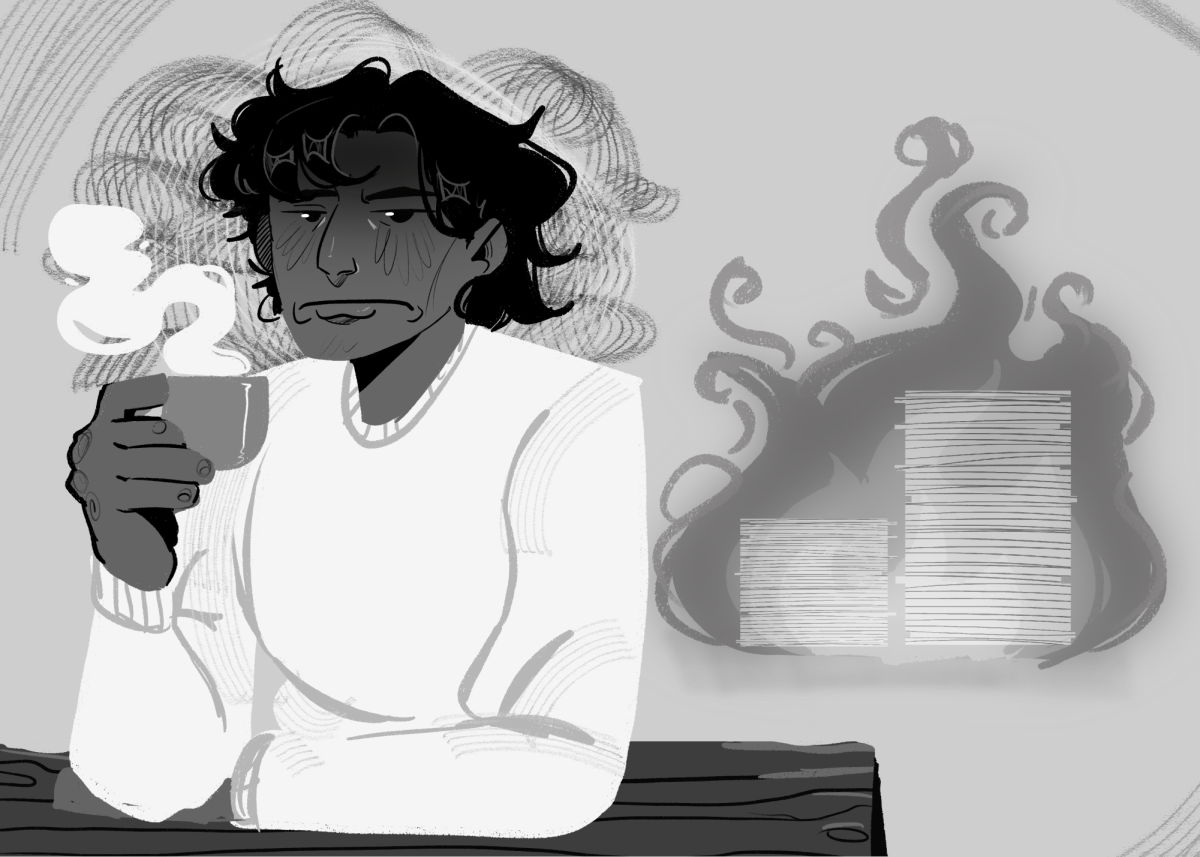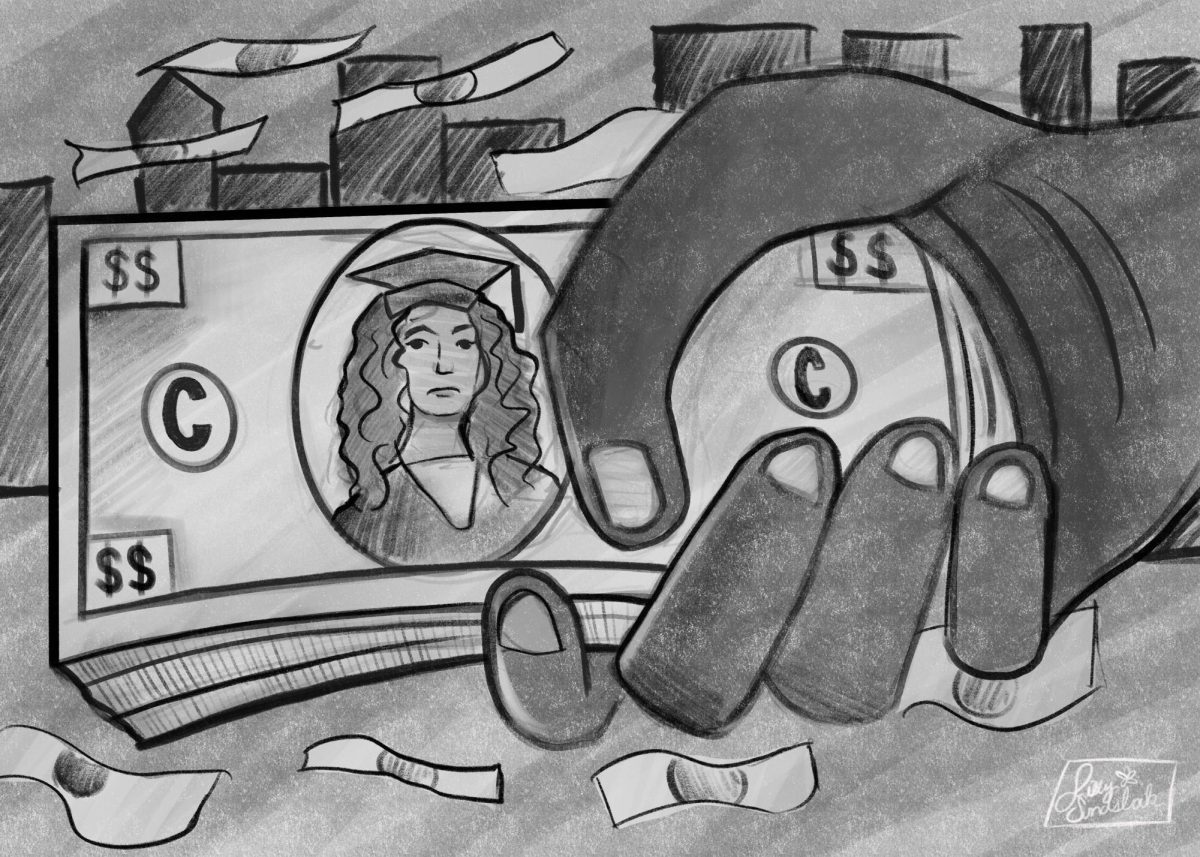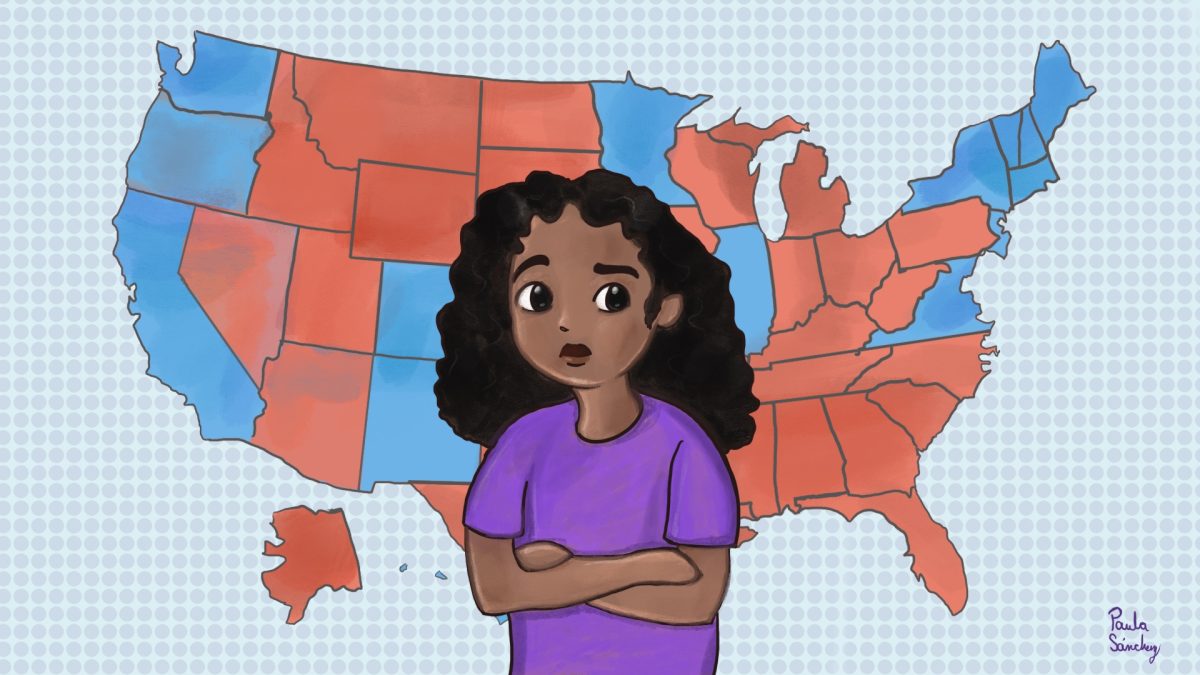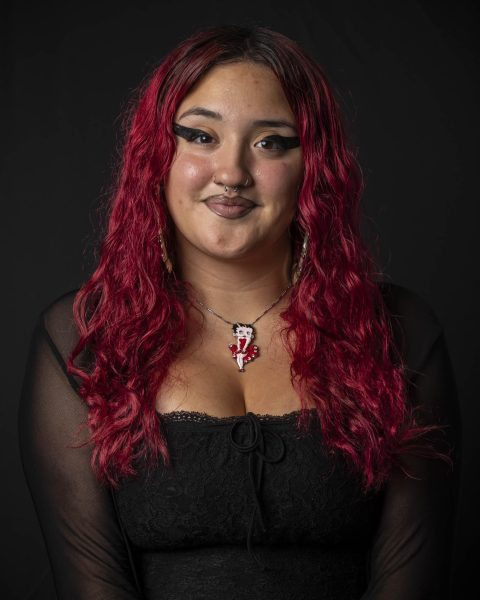The day after the college announced plans to cut 18 of the 58 majors to address the college’s $17 million dollar deficit and focus the curriculum, students and faculty expressed a range of emotions, from resolve to disbelief and disappointment.
Students enrolled in the impacted majors, which include American Sign Language-English Interpretation, creative writing and art history, will be supported until 2028 and will be able to graduate with their degrees, as previously reported by the Chronicle.
But across campus, there was a general feeling of sadness among faculty, staff and students on Thursday, Sept. 12, the day after Senior Vice President and Provost Marcella David announced that the college would reduce the number of undergraduate and graduate programs.
“I’m sad that we may end up losing programs that we like at Columbia, and at the same time, I understand the need to restructure into a way that allows Columbia to survive, and that’s the way I see it,” said Elizabeth Davis-Berg, former head of the now defunct Science and Mathematics Department, which merged into the School of Design this summer.
Students in the ASL-English Interpretation program said they were devastated.
“I love my program, my professors, the faculty and all my peers,” said Bee Bagley, a junior ASL-English Interpretation major. “This is my home and family. Through my short two years here so far, I’ve made lifelong friendships and professional connections.”
Many students like Teagan Wopat, a senior ASL-English Interpretation and theater double major, said they were surprised to see their major on the list of programs recommended to be cut.
Wopat said the college’s recommendation to cut the ASL-English Interpretation program undermines the school’s commitment to DEI. “Taking away this major directly contradicts that,” he said. “Also, they’re going to have to start paying real money if they want their shows to continue to be interpreted, because right now, students are interpreting it for free, and they’re benefiting from that.”
Some ASL students expressed the importance of their major being available at Columbia. In November 2023, Columbia’s accreditation for the ASL-English Interpretation program was renewed for the next 10 years.
ASL Club president Rachel East, an ASL-English Interpretation major, said it was irresponsible for the college to discontinue the ASL-English Interpretation program.
“The program that we have here at Columbia is the only four-year bachelor degree program for American Sign Language interpretation in the entire state of Illinois,” East said.
East said there is a national shortage of ASL interpreters in the country. “The degree program gives back to the Deaf community, which enables the community to access important information including medical info, educational information and much more,” she said.
Matthew Andersen, a Deaf assistant professor and ASL program coordinator a part of the ASL-English Interpretation program at Columbia, had similar feelings.
“I have no resentment against the administrators. I’m just sad that they are in this position where they got to do this to the Columbia community,” he said in American sign language. As a member of the Deaf community, both on and off campus, Andersen explained that this decision will eventually cause a negative ripple effect on the Deaf community.
“There is a ratio of roughly 50 to 80 Deaf ASL users to one ASL interpreter,” he said. “Losing a program of this caliber will impact countless individuals who rely on these vital communication bridges.”
Despite some shock among students, Diana Gorman Jamrozik, the associate director of the School of Communication and Culture and professor in the ASL-English Interpretation program, said she was not surprised the program was listed for consideration.
“We have gone through this before, when the college did prioritization. We are not a department that makes money for the college, and never really has. We’ve been one of those niche programs that do good for the greater society versus earning money,” Gorman Jamrozik said.
Gorman Jamrozik added that she is still very sad for the Deaf community. “There is a great shortage in sign language interpreters, and we produce great ones, and it’s going to be a huge loss for the community. I’m also very proud of what we’ve done over the past 30 years.”
Similarly to Gorman Jamrozik, Davis-Berg said she was also “not overly surprised” that the environmental and sustainability studies major was on the list to be cut but said she is still upset about it.
Davis-Berg said that she had put together the environmental and sustainability studies program with Michelle Rafacz, an associate professor in science and mathematics, and a few other faculty members.
This was the third year of the program’s existence.
While she was hoping for more incoming students to enter the program this fall, only two entered.
“It also may be that our major, the environmental and sustainability studies major, could transform into something that would be different, that would possibly be more in line with the new visions of the college, and so, that’s sort of the opportunities I’ve been thinking about,” she said.
The creative writing undergraduate and graduate programs were also on the list to be cut, and many creative writing students expressed disappointment to the Chronicle.
Bianca Zagal, a junior creative writing major, did not know of many schools with a creative writing major, which contributed to her decision when choosing a college.
Zagal said she feels for new and prospective students who were also interested in the creative writing program.
“I feel that they might feel stunted in their progress,” she said. “If they want to pursue writing creatively, they won’t have this resource. And, of course, there’s many other ways to access classes, but it’s different from having a major that’s solely dedicated to that and having professors and a community where you can work on yourself, on your writing and progress even further.”
Vincent Byas, a senior creative writing major was surprised at the list, although he acknowledged the “really dire spot” Columbia is currently in.
“Closing down things is a solution that’s only going to work in the short term,” Byas said. “Long term solutions prioritize the students and the school’s academic offerings more than anything else.”
Niya Aliyah Rodriguez, a junior English major with a minor in creative writing, said she can not imagine what a Columbia without a creative writing community will look like. “It’s such a great experience and at times I felt like I was a part of a family in those classes,” she said.
Similarly, senior creative writing major Andrew Ruhnke felt caught off guard by the news.
“It really wasn’t something that I saw coming considering the fact that the creative writing program has been such a long-standing program,” he said. “I have had many professors who took creative writing at the school when they were students.”
Austin St. Peter, part-time instructor in the School of Communication and Culture, spoke to his students about the possibility of cuts that were mentioned in the program review.
“We have a world class creative writing faculty, they are my colleagues,” St. Peter said. “I was not able to attend the meeting yesterday, but I read that my fellow faculty members critiqued Provost David pretty hard, and honestly I’m proud of them doing so.”
The provost also recommended that the music tech and dance bachelor’s degrees be put on a “watch list” and revised in order to bring down costs. The ASL-English Interpretation, dance and art history programs lose $10,001 to $20,001 annually per student because they cost more to deliver instruction than what students pay in tuition.
Despite this, students and faculty felt that dance plays a major role in Columbia’s community.
Kwon Boyd, a senior dance major, said the teachers, curriculum, variety of dance styles and community of the program attracted him to the major in the first place. He said he values “the talent, the people who come in here killing it from different backgrounds.”
In the “West African Dance Technique” course, “we learn that they are actually ballet dancers, contemporary dancers,” he said. “They come in here not knowing anything but by the end of the semester they got it down; that’s really unique.”
Aly Owens, a senior dance major, was saddened by the news. “Honestly, although our major is not very big, it’s still very shocking. Just because to a lot of us, the dance center is like our safe space and it’s gonna get taken away from people. It’s just very upsetting.” Owens and students like her not only want the spaces on campus to be there for herself, but also for future students as well.
Lisa Gonzales, associate professor of dance and former chair of the now dissolved Dance Department, said, “As a faculty, we really care about Columbia and we want Columbia to thrive.” The most important thing to Gonzales is “to keep dance alive” for students.
“It has been such an important part of the college for so long, and our students are amazing,” she said. “They come to this program because they need to dance, and they want to dance, and I think we are willing to do the work we need to do to try to make sure that dance continues along with Columbia.”
Even students whose programs were not on the list to be cut or merged, said they were disappointed.
Isabella Angeloni, a senior, and Guana Colinet, a junior, both film majors, were working at the Film and Television Equipment Center. They acknowledged that the School of Film and Television hasn’t been affected the way other majors have but have nonetheless noticed changes in the past few years.
“I’ve been here since 2021 and you can tell the quality of education and resources and things like that, it has decreased. And things are getting more expensive,” Angeloni said.
While Angeloni and Colinet were both critical of the college’s choice to cut programs, they also said they understand that it may be necessary.
“Nobody likes change,” Colinet said. “But I do feel like the restructuring is necessary with all the problems that school had before. Something had to be done. If there’s not many people in these majors and you’re pouring a lot of resources into keeping certain departments alive, I see why it makes more sense to streamline.”
Additional reporting by Lilly Sundsbak, Dustin Janicki, Charles Rahn, Marina Bradley, Trinity Balboa, Emma Jolly, Adriah Hedrick, Manuel Nocera, Ali Brenneman, Marie Guevara, Morgan Kromer, Sofia Oyarzún, Gavin Lipinski and Uriel Reyes.
Copy edited by Doreen Abril Albuerne-Rodriguez
Resumen en Español
Estudiantes, trabajadores y facultad de Columbia expresaron su estrés, decepción e incredulidad al aprender esta semana que la universidad eliminará varios programas académicos.
Los estudiantes actuales de esos programas, incluyendo Lenguaje por Señas Americana – Interpretación Inglés, Escritura Creativa e Historia del Arte, aún podrán graduarse con su título hasta 2028. Sin embargo, los estudiantes se quedaron sorprendidos y preocupados, como Rachel East, presidenta del club de Lenguaje por Señas Americana, y senior de Lenguaje por Señas Americana – Interpretación Inglés. Ella dijo que es irresponsable que la universidad elimine el programa. Niya Aliyah-Rodriguez, estudiante de tercer año de Inglés con un título menor de Escritura Creativa, dijo que no puede imaginar a la universidad sin el programa que tanto valora.
Lisa Gonzales, profesora asociada y ex presidenta del departamento de danza, dijo que quiere que se mantenga la pasión por el baile para los estudiantes, aunque es probable que el programa sea eliminado.
Guana Colinet, estudiante de tercer año de cine, entendió tanto la dureza como la necesidad de los cambios. “A nadie le gusta el cambio,” Colinet dijo. “Pero, siento que la reestructuración es necesaria con los problemas anteriores de la universidad. Algo hubo que hacer.”
Resumen en Español por Sofia Oyarzún
Resumen en Español copia editada por Doreen Abril Albuerne-Rodriguez


